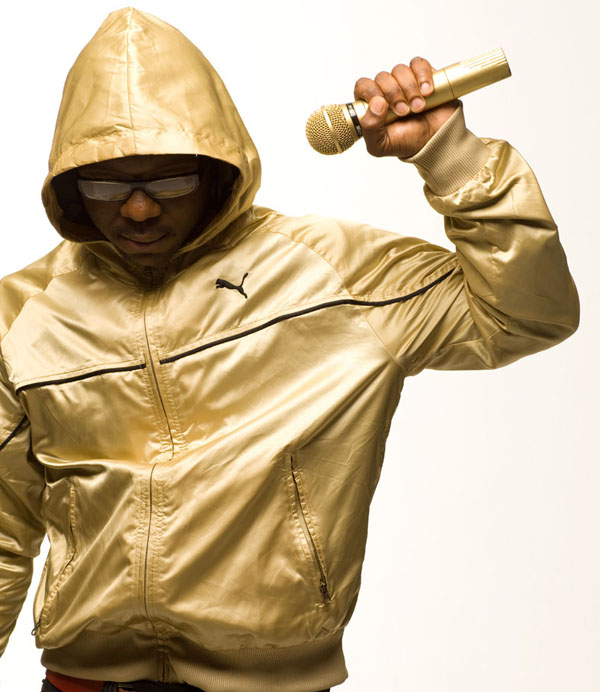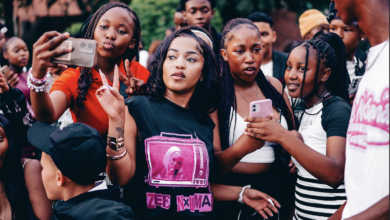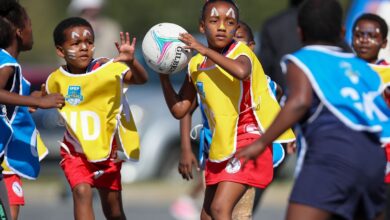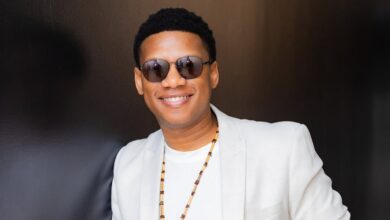Zubz The Last Letter Interview

The Zambian born, Zimbabwean raised and South Africa based rapper Zubz (The Last Letter, Golden MC Holder) has a great passion for the African continent, in our interview with Zubz we speak about the Africa youth, his music career, what he would change about Africa, his greatest influence and the extent of which his music as an art has touched and moved people in Africa and abroad.
Zubz is a Zambian born, Zimbabwean raised rapper and he’s just a regular guy. Zubz is guy who absolutely love hip hop music and he has a burning passion and desire for the African continent just as much as he has a desire for hip hop music. He’s a dude who dedicated his life to his craft and his art.
How was your upbringing?
My real name is Ndaba I was born to a Magistrate, lawyer and a Nurse. I was born in Zambia in a city called Kasama. I spend my formative years there and then my dad got a job in Harare (Zimbabwe) working as a lawyer in the government. We moved to Harare in the 80’s that’s where I did my primary school and my high school. I grew up to an ordinary life in Zimbabwe just after the independence and President Mugabe has almost made it compulsory for everyone to go to school, even if you couldn’t afford to go to school the government would pay for you. I grew up in an environment where going to school was encouraged, being educated was normal and the great schools in the country that were sort of private, expensive schools were not different to the government schools. The standard of education was all the same. I grew up in an okay neighbourhood it wasn’t the fancy neighbourhood, it wasn’t low or high , it was just in the middle. After finishing my A levels in high school I decided that I wanted to go to university but I didn’t get the necessary qualification to go to the University of Zimbabwe however I did qualify to go to University of Cape Town and Rhodes University in the Eastern Cape and I was accepted to both but I chose to go to Rhodes because Grahamstown had a similar energy like Harare at that time and Cape town was too busy for me . I went to Rhodes and I studied B.com in Information Systems, Economics and Commercial Law. I graduated in 1999 and moved to Johannesburg straight after that and jumped into my music career and as they say the rest is history.
Why Hip Hop?
I know some people might find it weird that someone who graduates with a degree in Information System decides to do hip hop but the truth of the matter is that hip hop music is not different to just about anything else in life. The thing about hip hop is that it speaks about everyday living including what you believe in, what you study, what you hope for etc. Hip hop is not just music, it’s a lifestyle so you can still live a hip hop lifestyle and subscribe to the hip hop culture and still be a dentist, lawyer or an accountant. I never chose to become a rapper, for example I’ve always rapped as far as I can remember all I did was write rhyms and I loved words. The first time I heard hip hop music I wasn’t like what is this thing? and what do they call it?, I wanted to be a part of it, its something I enjoyed from an early age and I just resonated with it. It was just a natural process for me to become a hip hop artist because I already was a hip hop artist I just made it formal in 2000 when I just officially decided that I’m going to do records and I’m going to make it an official thing that I rap.
Do you think Hip Hop has more impact today compared to back then?
I think hip hop has a different audience and it has a different purpose and meaning in the society compared to back then. When I grew up in Harare, hip hop was just music.The hip hop culture was not engraved, people never use to dressed hip hop, speak hip hop, think hip hop or dance hip hop back then it was just us appreciating thies music these guys were bringing from America or wherever and we would share magazines and staff but it was never an everyday cultural thing. I find that this day it is culturally engraved and people who love hip hop will not just speak hip hop, dress hip hop but they think hip hop they feel hip hop, it’s like an all-round cultural thing that they have crafted into their own identity as African youth, so I think in that regard it has changed. Back then hip hop was a niche only a selected few loved hip hop and people went digging every deep to find it whilst now its main stream, it’s popular, it’s commercial and you don’t have to dig very hard to find it to be part of it, it’s just everywhere and it’s been adopted as normal, that’s the major difference I find with hip hop. The sound has changed over the years, then it was bass and drum heavy and very loop driven, now it’s very easy on the ear and very light. The content is also different, it’s light hearted than it was before and that has been the evolution of hip hop through time.
Do you think female rappers are given enough exposure? If Not. What needs to be done to balance the hip hop scene?
I think historically hip hop has been a every male dominated world, it’s been all about dudes, I mean the formative founders of hip hop music are mostly guys. You do get artists like MC Lite, Queen Latifah from time to time but generally it’s just a guy driven industry, but I find that as time goes on more and more women are becoming involved as the view of women in hip hop changes. Whereas back then the view of women in hip hop was generally seen as derogatory and misogynistic, until people like Tupac and Mos Def gave tribute to their mothers and girlfriends. The role of women in hip hop is changing so that has allowed women to not just what to be poets when it comes to lyrics and words in hip hop but also what to be MCs, beatboys and DJs.I see lots of more women coming in but I think what we need to do as a culture is that we need to call out these women a bit more, we need to celebrate them. I love the way people celebrate DJ Zinhle, what a talented DJ, she’s awesome but I really feel that equal attention should also be given to female DJs who plays hip hop music.
 What are your thoughts regarding Vernac vs English rapping?
What are your thoughts regarding Vernac vs English rapping?
My thing with Vernac rap and English rap it’s very simple I feel like with hip hop music the most important thing are the words that you say and the words are important because of the idea they represent to the people that are going to hear them. If your words and ideas are being heard by the people it’s cool if you’re speaking in Chinese, Mandarin or whatever I don’t care as long as people out there can hear what you saying and understand the ideas that you’re dropping. The language you use for me is not that much of an issue. I’m originally from Zambia I should originally rap in Nyanja, now imagine me living in South Africa rapping in Nyanja, I’ll be seen as the Vernac rapper with a language nobody understands and people will be forced to vibe with the music and not understand what I’m saying. When you’re living in an environment where people are the most important thing to your music you have to make sure people understand your music, understanding is more important to me than the vehicle you use to teach. I’m cool with people rapping in vernac if they’re really good at that language and if they can express themselves really well in vernac great, if not then use the language you can best express yourself.
Your albums Listener’s digest (2005) and Headphone music in a parallel world (2007) were both nominated for Best Hip Hop Albums at the SAMAs. Did you expect that to happen?
I didn’t, with awards you’ll never know it’s a hit or miss, you do an album and you do what you can as an artist and you leave the rest to your recording label and fans, that up to them, with Listener’s digest I was very excited and surprised and when Headphone music in a parallel world was nominated too it was awesome. Having both albums nominated was exciting and I really appreciated it.
What makes you different to other rappers out there?
Like I said I was born in Zambia and raised in Zimbabwe and now I’m based in South Africa my experiences are so different to everyone out there and I feel like I need to share them as part of my identity and that is what separate me from everybody else. I feel like my story is unique to me even though things i have experienced might be common to everybody but the life that I lived is unique to mine. I try to be personal with my music, I try to express my thoughts and my life my experience more than anything else in my music. I try to represent the Zambia in me, the Harare in me, the Mabuya in me, the Jozi in me and all these things comes together in the form of Zubz the last letter. What I show visually through the golden mic is what separates me from any other artist out there.
Why is important to you to do hip hop with a real message?
I create music with a message so that it can impact and change the world around me today and tomorrow.
What were the challenges you faced before you made it big?
I don’t know about making it big I’m still facing challenges today, they never stop. The challenge changes with every hurdle you jump over, and you face new hurdles. When I started out I had to battle so people could see I am a real MC, after that I had to get over the challenges of recording, mastering, mixing, distribution and Outrageous came into the picture and sort that out. I’ve faced many challenges even the language barrier some people feel strongly about their language that they feel as soon as the rapper rap in English and they don’t relate. The fact that I’m not from here but I’m based here, I had to overcome xenophobia I had to overcome the perception on foreigners , it took a while to be accepted in the hearts of South Africans.
What are you doing to empower youngsters out there?
Young people are my life, you know that this hip hop music is specifically consumed by young people more than anybody else so I try to change other young people too, not through my writing and my music but I do workshops as well as carry out various workshops in the Joburg area. I have one (workshop) in October, I try to have one atleast a month, I bring a lot of youngsters out we talk hip hop, writing, verses and I explain what is a sixteen bar, what means to express yourself, to have a voice, to believe in yourself and those workshops l help impart knowledge, self confidence and belief in young people. I try my best to avail myself to channels like Youth Village and it is a big platforms because it’s speaks to the same people I try to speak to all the time, you help me reach people I can’t reach so this is my way of getting in there and inspire young people to reach their highest heights.
I was lucky in that I was exposed to famous people at an early age, and even before I finished high school I already had been on stage, done TV ads and I had done a couple of shows already. For me it was not big deal when I broke into the public space. I try to see things for what they are and I don’t let that get into my head. I still recognize that tomorrow the fame could be gone and the same reason why I am here today could be the same reason the next person can be there tomorrow. Even though we’re special as human beings there is nothing that makes one of us more special than other people so I always remember that. I grew up as a Christian man in a Christian home knowing there is no one bigger, powerful and more important than God .
What would you like to change about Africa?
I would like to change the history we’ve had, Africa had a every traumatic history throughout the continent. We’ve come from colonialism, we’ve come from war, we’ve come from hunger and disease these are the things we still deal with today. We still trying to deal with the effects of the past, I would want to change the way we approach those past historical problems today so that they won’t continue to be the problems in the future. I feel like there will forever be a problem for us going forward unless we deal with them today. I’ll change just the urgency of it, I’ll make sure it’s on top of the list and I’ll also change the approach just to make sure it’s more open and public so that people can contribute more to the solutions.
With sales being a challenge and substance not selling. How do you guys generate sustainable in come?
The whole world right now is dealing with that question and no one has an answer, we have lots of people all over the world in the music industry sitting in meetings trying to figure out the answer to that question.The live shows are important now and actual talent is important, people are not just going to buy into anything, people want to be touched and moved I feel like part of challenges of dealing with the low sales is an understanding that sales are dwelling in general so focus on other things that have value in the music business.
Any future projects that you’re working on?
There’s a few actually, I started a year with a project with Tumi it was a mixtape that we did. It was a free mixtape that we gave way as a tribute to kwaito music called TZ Deluxe. You can go online Google TZ Deluxe Or Tumi and Zubz kwaito tribute. Expect more collaboration projects from me in the future from 2013 going forward especially collaboration albums with my favourite artists. Right now I just finished the project called Dragon Lion Full Circle that will be out before the end of the year and I’m also working on a different project which is an album and the book. I’ll tell you more as I’m getting closer to finishing it because it’s a very big project it’s going to take a while to complete, stay in touch on Twitter (@zubzlastletta) and Facebook I’ll let you know as I go on.
Your advice to young people?
First of all I want to say well done to you guys ( Youth Village) for noticing that young people are the future in more ways than people can image and if we talk to them and invest in them today you’ll be making the real impact on the world tomorrow. The future is all about you guys and what you guys decide to take in and do today is what’s going to determine how your lives are like tomorrow, be responsible, be careful, be wise, be smart and learn to empower yourself with much knowledge as it will open up your mind and do not be limited by preference and all these other things people impose on you, ask questions, dig deeper and go out there and change the world.






